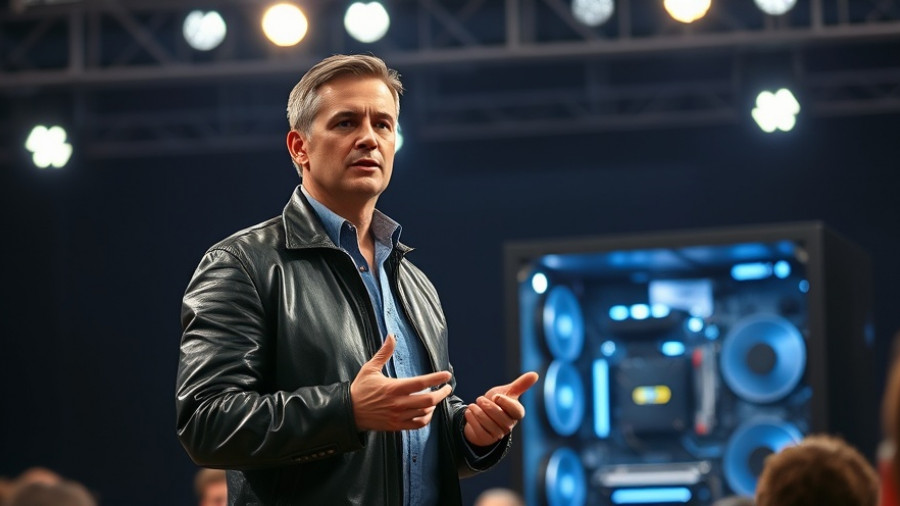
AI Partnerships Drive the Future of Entertainment
In a groundbreaking announcement at the recent GTC conference, Nvidia CEO Jensen Huang outlined the company's transformative partnerships with Disney and Google as they forge new pathways in artificial intelligence (AI) and immersive entertainment. With a focus on the seamless integration of AI into next-generation experiences, Nvidia is set to revolutionize how audiences interact with their favorite franchises, as evidenced by the whimsical inclusion of a Star Wars-inspired droid during Huang's keynote speech.
The Power of AI in Next-Gen Entertainment
Nvidia’s collaboration with Disney aims to merge cutting-edge technology with beloved stories. As mentioned, the focus on AI extends beyond just visual effects; it encompasses storytelling, personalized experiences, and creating interactive worlds in which fans can participate actively. This dual approach not only enhances viewer engagement but also deepens emotional connections to characters and narratives.
6G: The Next Frontier of Connectivity
Building on its technological prowess, Nvidia's recent partnership with telecom leaders marks a significant leap toward deploying AI-native wireless networks for 6G. These networks will efficiently manage the increased data demands brought on by advancements in AI and entertainment technology. By offering unprecedented bandwidth and connectivity, AI-enhanced 6G networks will support the rich, interactive experiences that Nvidia and its partners aim to deliver.
Strategic Alliances Fuel Innovation
As Nvidia collaborates with industry titans, the company's strategic partnerships are designed to leverage various domains of AI. Just as General Motors (GM) is using Nvidia's technology to optimize automotive design and safety, Disney is exploring how AI can innovate storytelling and audience engagement. The merger of data sciences with creative industries is fostering an ecosystem where AI not only acts as a tool but becomes an integral component of the creative process.
The Future of AI-Powered Storytelling
With ongoing discussions about sustainable practices in technology and entertainment, Nvidia is exploring how AI can also contribute to sustainability initiatives. This holistic approach emphasizes not only enhancing experiences but also being responsible for the impact of technology in a broader societal context. As creators harness upcoming technologies, they have the opportunity to reshape narratives that resonate with young audiences and instill values that align with a more sustainable future.
Taking AI Beyond the Screen
As Huang demonstrated with the Star Wars droid, AI technology’s potential extends far beyond traditional boundaries. From AI-enhanced virtual assistants to intelligent robots, the partnership between Nvidia and Disney showcases how AI is becoming a crucial element in devising experiences that are immersive, interactive, and memorable. This convergence of AI with fandom culture paves the way for enhanced user participation, ushering in an era where audiences can explore their imaginations alongside AI companions.
A Call to Action for AI Enthusiasts
The ongoing technological evolution heralds exciting prospects for the AI community. As Nvidia firms its place at the nexus of innovation, enthusiasts and professionals alike are invited to keep an eye on these developments. Engaging with AI's applications in entertainment not only fosters a deeper understanding of technological advancements but also opens up opportunities for contributing to this transformative wave. Dive deeper into the implications of AI in your favorite media, explore new partnerships, and remain engaged as we journey into this compelling era of AI-driven creativity.
 Add Row
Add Row  Add
Add 




Write A Comment